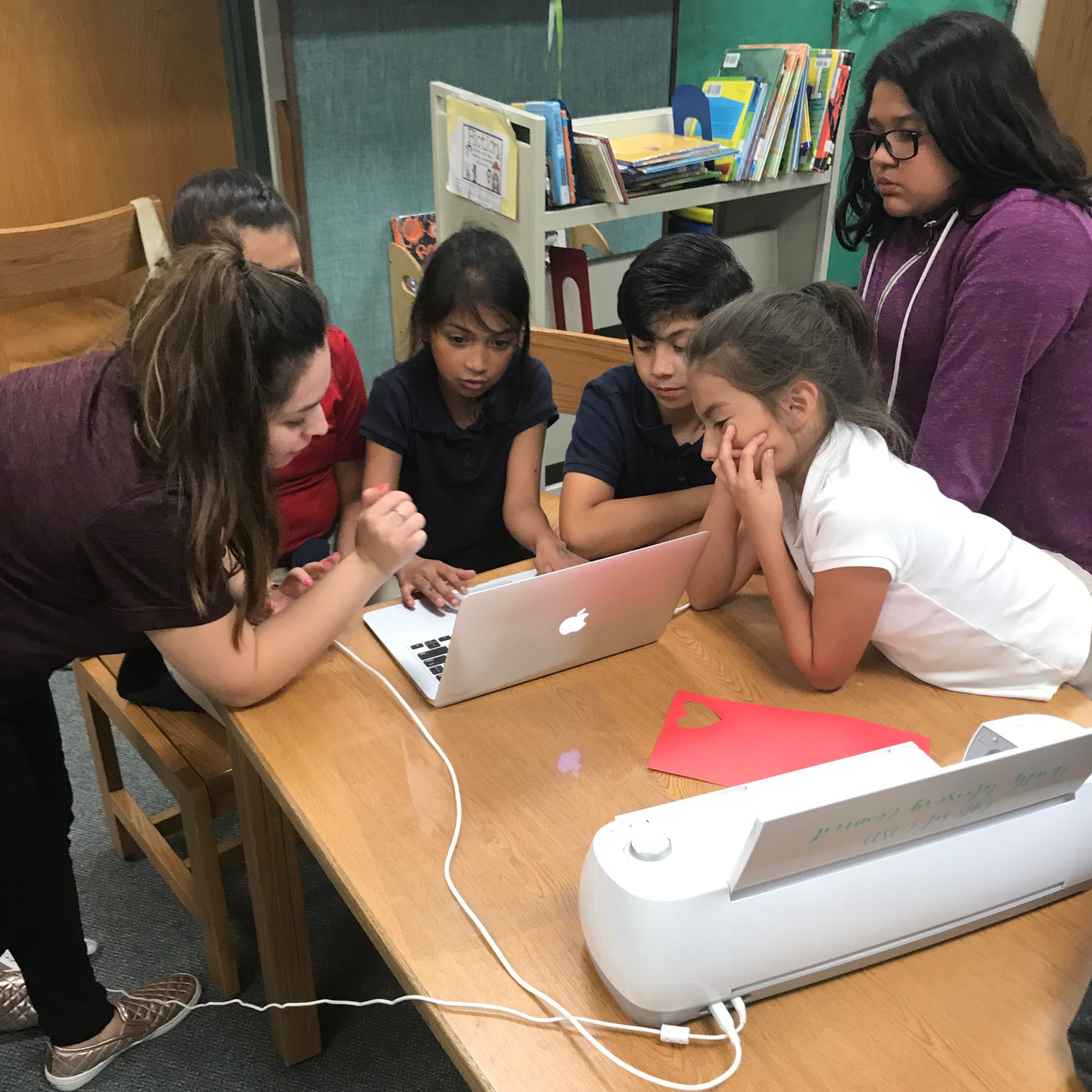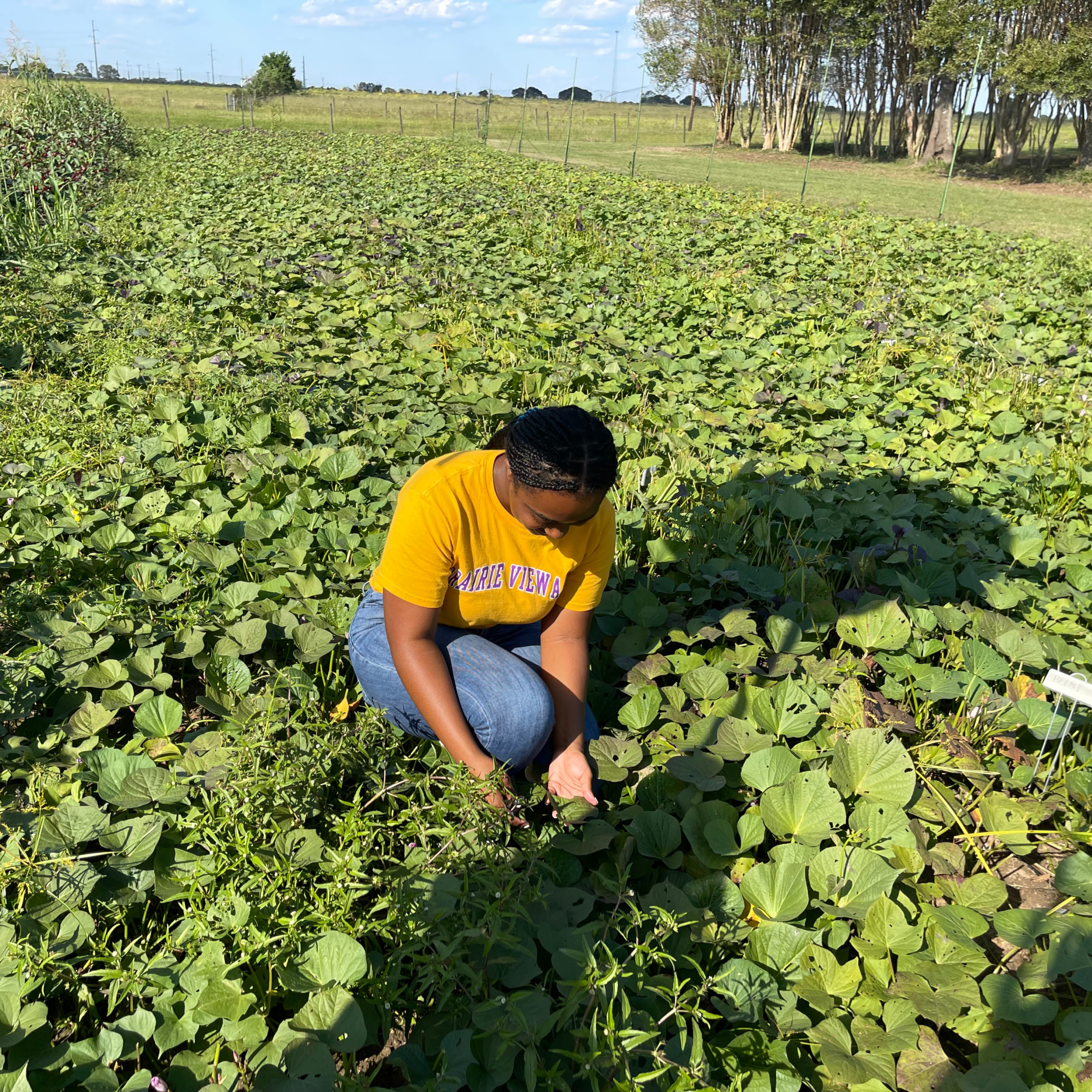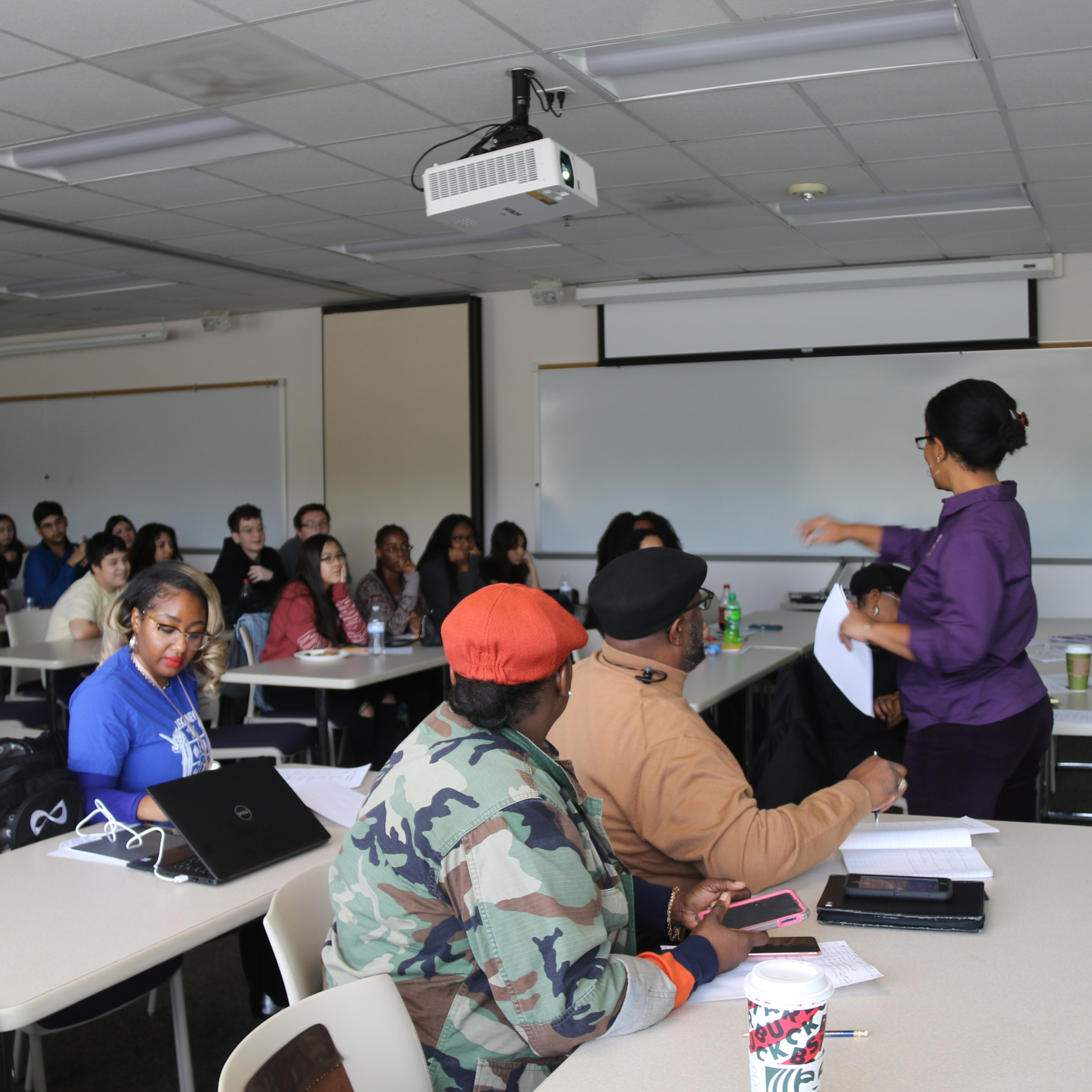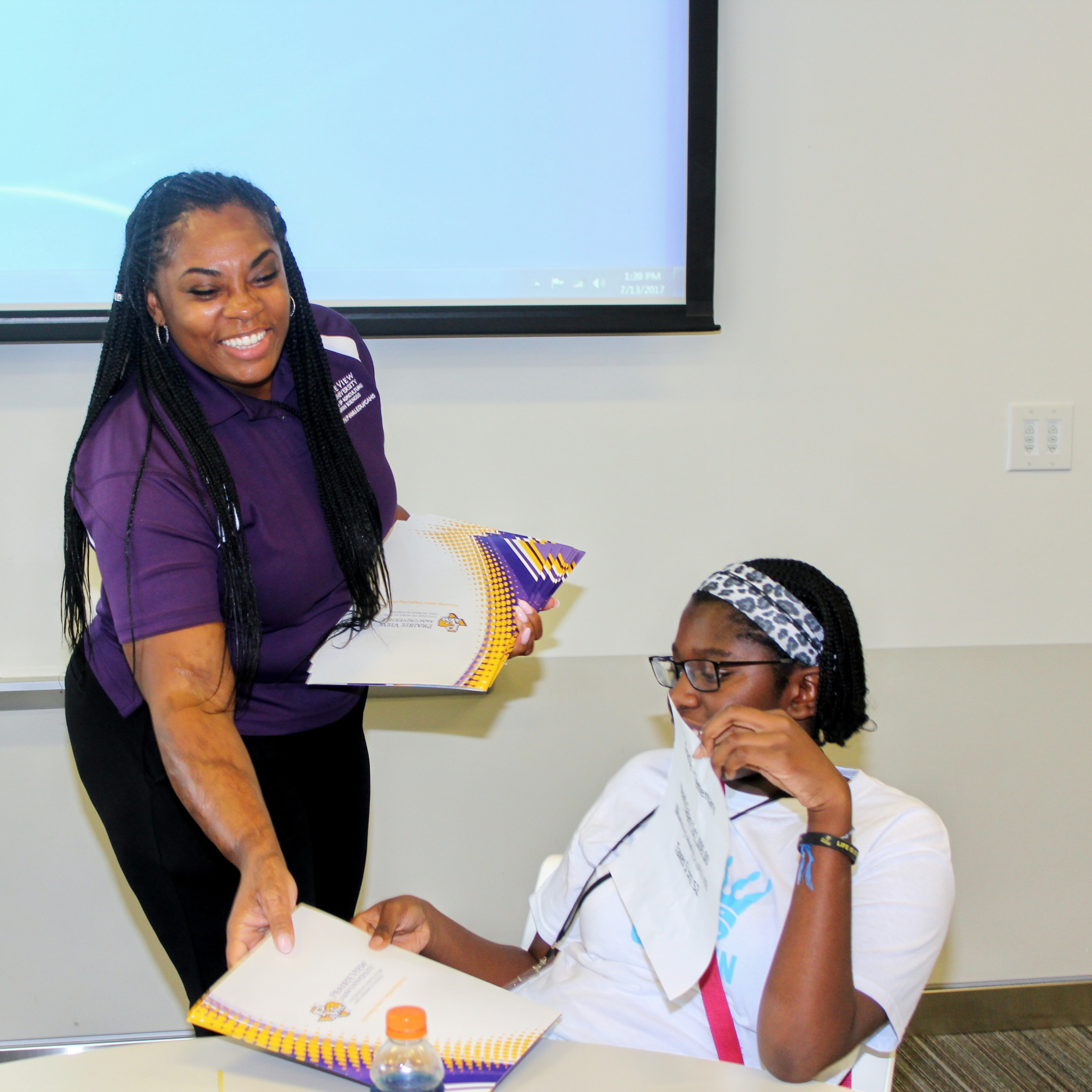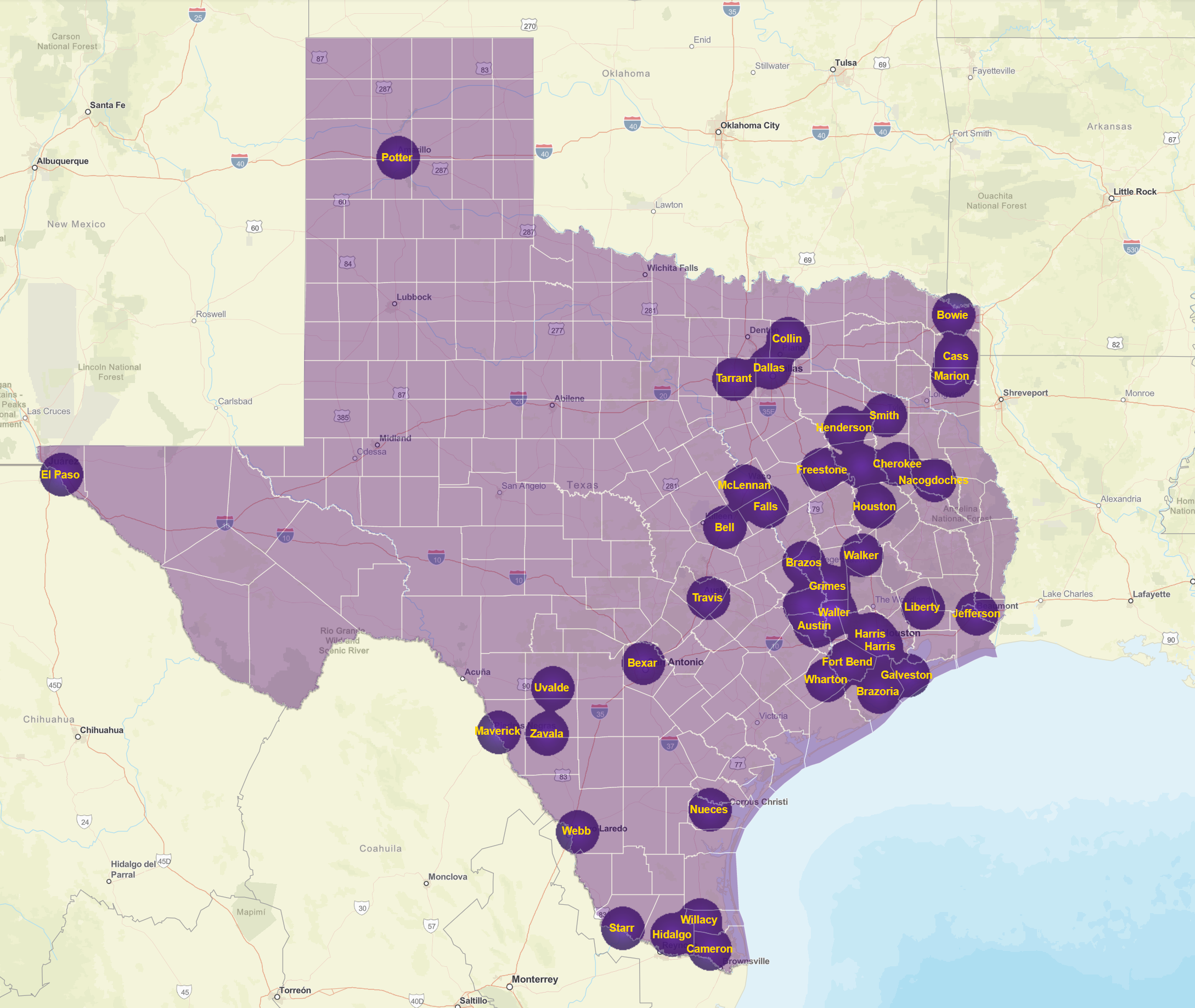Established in 1914, PVAMU Extension (formerly the Cooperative Extension Program) was developed by a partnership of the U.S. Department of Agriculture and land-grant universities. It continues to stand as a dependable community asset in over 56 Texas counties, dedicated to enriching and transforming the fabric of Texas communities. PVAMU Extension provides cutting-edge, research-based information to all Texans in support of our mission to build resilient families, improve farm sustainability, expand small businesses, and empower youth to be leaders now and into the future. The PVAMU Extension’s main priority is taking knowledge gained through unbiased research and education and disseminate it directly to the people to create positive changes. This is accomplished through the work of local Extension agents also known as Extension educators.
Extension educators apply various modes of modern technology to expose knowledge and tools but also rely on traditional human values and relationships to gain the attention and trust from the people they serve. As residents of the communities where they work, extension agents bring credibility to their roles as educators. Extension agents are supported by program specialists with expertise in technical subject matter areas. Extension Program Specialists play a critical role in implementing the mission of the 1890 Land Grant System through support to the Extension agents.
Using state-wide, county, and regional needs-based assessments, specialists create programs, services, products, and processes to meet the identified needs of the families and communities. In addition to developing state-wide, regional programs, specialists provide technical guidance to county agents in multiple facets of their county’s program development. To be effective in their roles, specialists receive numerous professional licenses/certificates, terminal degrees, training in adult and youth learning, and the best practices for working with various communities.
Educational outreach activities and informal class series are offered through four basic program areas: Agriculture & Natural Resources, Community & Economic Development, 4-H Youth Development and Family & Community Health. State program leaders in these areas provide statewide supervision and leadership for Extension Agents, Program Specialists, Student Workers/Interns, and Administrative Associates. They also determine program direction, future trends, establish proprieties and guide performance plans to produce positive impacts.
PVAMU Wellness in Houston is another signature program offered in six counties. PVAMU Wellness in Houston comprises four PVAMU’s colleges that work collaboratively to curate programs that forge educational, healthcare assessment, and outreach programs. The four colleges are: The College of Agriculture, Food and Natural Resources, the College of Nursing, the College of Juvenile Justice, and the College of Business. Our mission is to address health disparities and food insecurities by promoting health, wellness, and nutrition to limited-resource communities in the Greater Houston area, ultimately encouraging healthy, long-term lifestyle changes and behaviors. Our project’s primary objectives consist of an exhaustive curriculum tailored to assess and meet the needs of various communities.
Access to information is one of the many ways PVAMU Extension works to empower communities, be responsible stewards of federal funds, address emerging issues, and provide excellent customer service to the people we serve.
“Not everything that is faced can be changed; but nothing can be changed until it is faced,” -James Baldwin
Program Areas
Extension at a Glance
In accordance with Federal civil rights law and U.S. Department of Agriculture (USDA) civil rights regulations and policies, the USDA, its Agencies, offices, and employees, and institutions participating in or administering USDA programs are prohibited from discriminating based on race, color, national origin, religion, sex, disability, age, marital status, family/parental status, income derived from a public assistance program, political beliefs, or reprisal or retaliation for prior civil rights activity, in any program or activity conducted or funded by USDA (not all bases apply to all programs). Remedies and complaint filing deadlines vary by program or incident.
Persons with disabilities who require alternative means of communication for program information (e.g., Braille, large print, audiotape, American Sign Language, etc.) should contact carolyn.williams@ag.tamu.edu by email, or contact USDA through the Telecommunications Relay Service at 711 (voice and TTY). Additionally, program information may be made available in languages other than English.
To file a program discrimination complaint, contact Ms. Toya Douglas, M.B.A., Director of Equal Opportunity & HR Compliance, P.O. Box 519, Mail Stop 1337, Prairie View, TX 77446-0519, 936-261-1792; complete the USDA Program Discrimination Complaint Form, AD-3027, found online at How to File a Program Discrimination Complaint and at any USDA office; or write a letter addressed to USDA and provide in the letter all of the information requested in the form. To request a copy of the complaint form, call (866) 632-9992. Submit your completed form or letter to USDA by: (1) mail: U.S. Department of Agriculture, Office of the Assistant Secretary for Civil Rights, 1400 Independence Avenue, SW, Mail Stop 9410, Washington, D.C. 20250-9410; (2) fax: (202) 690-7442; or (3) email: program.intake@usda.gov.
USDA is an equal opportunity provider, employer, and lender.



